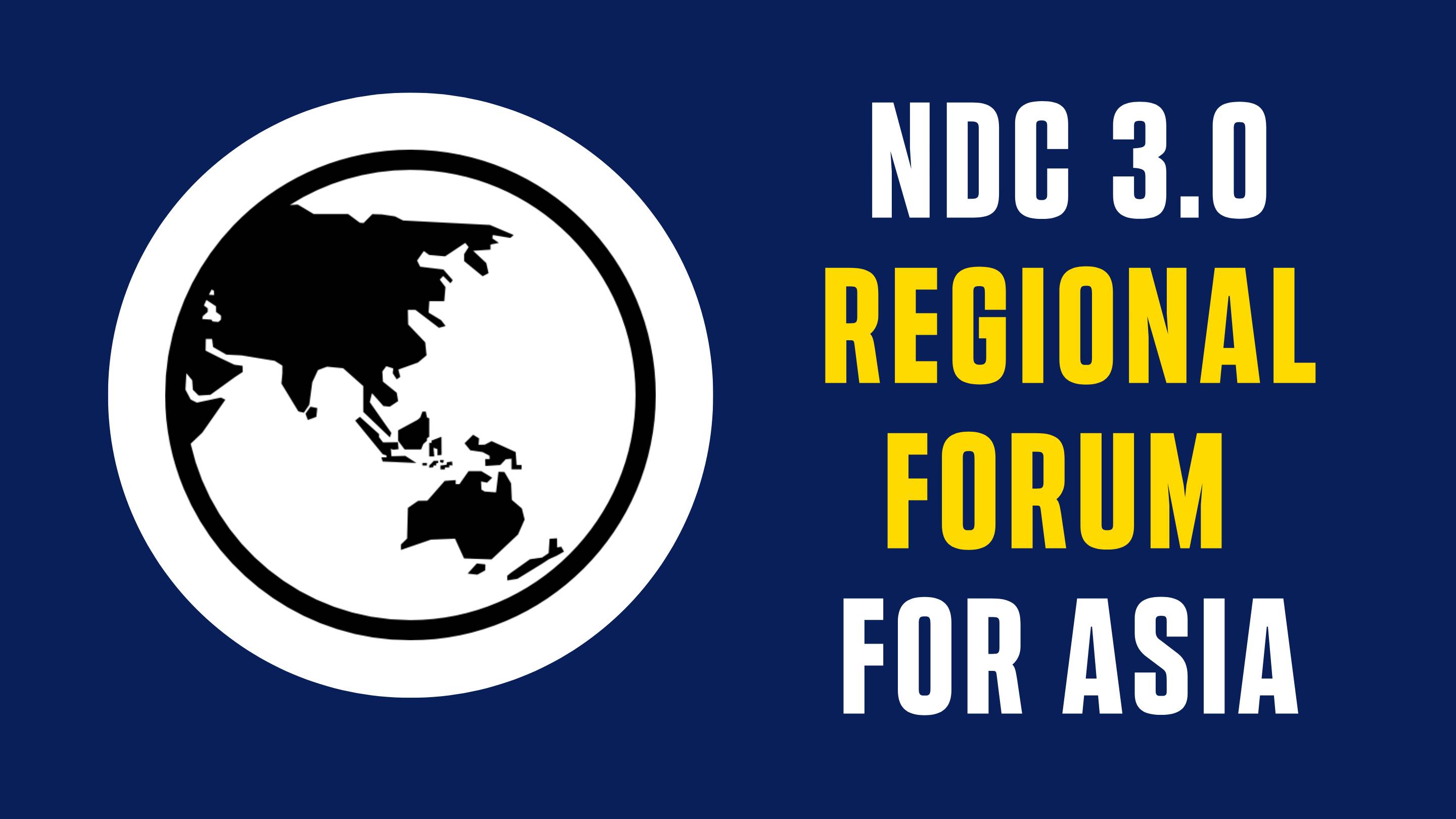
As the global community gears up for the next phase of climate action, countries are preparing the third generation of Nationally Determined Contributions (NDCs), known as NDC 3.0, which will be completed by 2025. These NDCs are central to the Paris Agreement and offer countries an opportunity to increase their climate ambitions while addressing national development priorities. With the release of the IPCC Sixth Assessment Report and the UNEP Emissions Gap Report 2023, it is clear that the world is off-track in meeting its global temperature goals. In response, the Global Stocktake (GST) process has called for countries to scale up their climate ambitions, urging that NDC 3.0 should not only target emissions reductions but also drive transformational change, enhance resilience, and be integrated into national development strategies.
This is the backdrop against which the NDC 3.0 Regional Forum for Asia will take place from September 30 to October 2, 2024, in Bangkok. At this forum, SWITCH-Asia will engage with countries and stakeholders to emphasize the importance of integrating Sustainable Consumption and Production (SCP) and Circular Economy (CE) approaches into the new generation of NDCs and Long-Term Low Emission Development Strategies (LT-LEDS).
Participants, invited from government ministries engaged in NDC development and implementation, will engage in peer-learning, explore innovative financing models and share how to develop policy roadmaps that lead to implementation. The Fora will be a place to discuss how ambitious sectoral targets can lead to transformational change and investment plans.
Tackling Unsustainable Consumption and Production
The triple planetary crises of climate change, biodiversity loss, and pollution are closely linked to unsustainable patterns of consumption and production. The upcoming Global Resources Outlook 2024 by the International Resources Panel (IRP) highlights that changes in production and consumption patterns can help avoid a significant portion of global greenhouse gas emissions. By embracing SCP and CE, countries can not only reduce emissions but also build climate resilience through improved resource efficiency. These approaches offer co-benefits that extend beyond climate mitigation to climate adaptation. SCP and CE can contribute to more efficient use of resources, which in turn strengthens adaptation and resilience-building efforts. For example, resource efficiency can expand the scope of climate adaptation by extending the lifespan of infrastructure or making better use of natural resources.
SWITCH-Asia’s Engagement at the Asia NDC 3.0 Forum
SWITCH-Asia has been actively supporting countries in integrating SCP and CE into their NDCs and LT-LEDS, and its participation in the NDC 3.0 Regional Forum for Asia and contributing to the recently concluded NDC 3.0 Regional Forum in the Pacific, reflects its commitment to advancing this agenda. The inclusion of SCP and CE into NDCs and LT-LEDS is more than just a technical adjustment—it is a broader vision for how economies can grow sustainably while tackling the climate crisis. By embedding these approaches into NDCs, countries can support the transition to low-carbon economies, and enhance their resilience to climate impacts.The programme is already implementing Technical Advisories (TAs) in South Asia and the Pacific, and it is preparing to launch a new advisory in Central Asia, aimed at assisting countries in aligning their climate ambitions with SCP and CE strategies. At the forum, SWITCH-Asia will work closely with national governments, the NDC Partnership, the UNFCCC Regional Collaboration Centre for Asia Pacific, UNDP, and other regional stakeholders to ensure that SCP and CE play a central role in shaping NDC 3.0. The forum will provide a platform for countries to share experiences and collaborate on the integration of these approaches into their climate frameworks, enhancing both mitigation and adaptation efforts.
SWITCH-Asia’s aim is to help countries develop concrete policy roadmaps and financing plans that address climate change while unlocking sustainable growth opportunities across key sectors. Through its involvement in the forum, the programme will continue to advocate for transformational approaches that are both ambitious and practical, ensuring that NDC 3.0 reflects the urgency of the climate challenge.SWITCH-Asia’s participation in the NDC 3.0 Regional Forum for Asia is a key step in this direction of transformational changes, as the programme continues to drive forward initiatives that support countries in the Asia-Pacific region to achieve their climate goals. As the world prepares for the next phase of climate action, SWITCH-Asia will remain an active and engaged partner in ensuring that sustainable consumption and production are central to national climate strategies.


